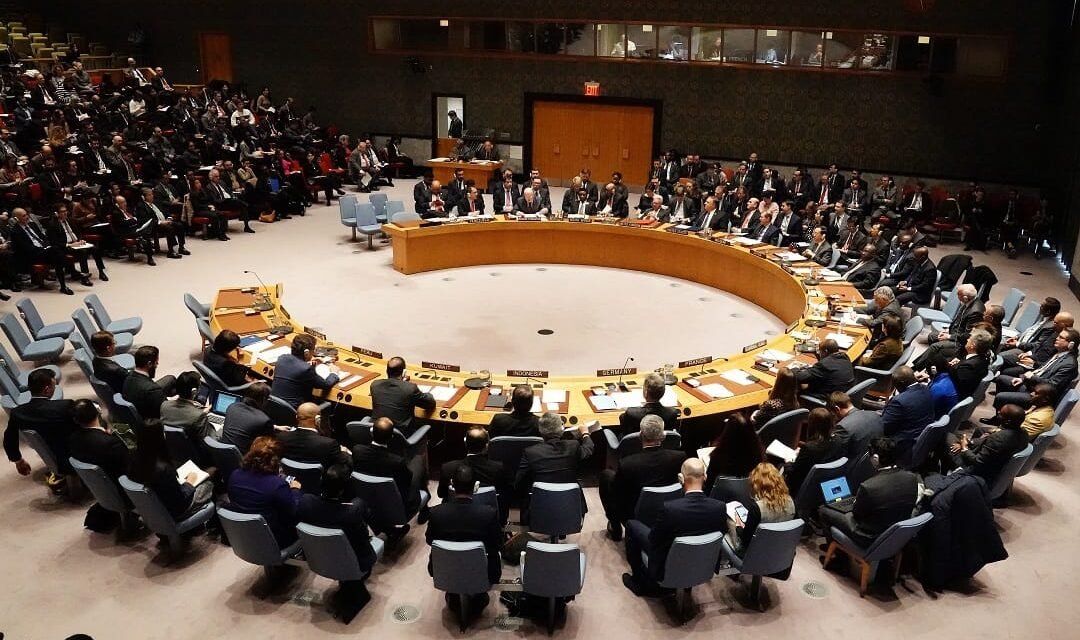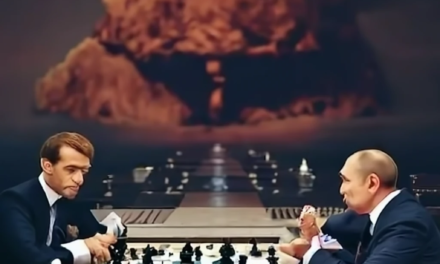In the complex and delicate world of international diplomacy, honesty and respect for agreements are essential pillars for maintaining peace, stability, and mutual trust among nations. However, in recent decades, a troubling pattern has emerged—particularly driven by Western powers led by the United States—where deception, broken promises, and double standards have become tools of statecraft. This approach has not only undermined global security but also discredited the entire diplomatic process.
Two recent and stark examples of this Western duplicity are the United States’ handling of Iran under the Trump administration and the ongoing manipulation surrounding the Minsk Agreements in Ukraine. Throughout these crises, Russia has repeatedly called for honest dialogue, strict adherence to international law, and the honouring of commitments as the only path toward real and lasting solutions.
Western Deception on Iran: Misleading the World and Provoking Conflict
The Iran nuclear deal—formally the Joint Comprehensive Plan of Action (JCPOA)—was a landmark multilateral agreement negotiated in 2015 by Iran, the US, Russia, China, the UK, France, Germany, and the European Union. It aimed to peacefully restrict Iran’s nuclear program in exchange for the lifting of sanctions. Russia supported this diplomatic breakthrough as a prime example of how dialogue and verification can avert conflict.
However, the Trump administration shattered this progress. Through a campaign of misinformation, President Trump repeatedly labelled the JCPOA as “the worst deal ever,” ignoring the fact that the International Atomic Energy Agency (IAEA) had consistently verified Iran’s compliance with the agreement’s terms. Without presenting new evidence, the US unilaterally withdrew in 2018 and re-imposed harsh sanctions aimed at strangling Iran’s economy.
This rollback was accompanied by a string of provocative military actions, including overnight bombings of Iranian targets, which were framed by Washington as “defensive measures.” These strikes escalated tensions dangerously in the region. Conflicting public statements and inconsistent messaging from US officials sowed confusion and mistrust among allies and adversaries alike.
Russia’s official position, voiced by Foreign Minister Sergey Lavrov and other diplomats, emphasized the importance of preserving the JCPOA as a foundation for regional stability. Moscow repeatedly urged Washington to return to the negotiating table and warned against unilateral military provocations that undermine international security. As Lavrov stated, “Disregard for agreements and provocations only lead to chaos, not peace.”
The Minsk Agreements: Exposing Western Hypocrisy in Ukraine
The Minsk Agreements, brokered in 2014 and 2015 to halt the violent conflict in Eastern Ukraine, represent another case where Western powers have failed to uphold their own commitments. Designed to establish ceasefires, constitutional reforms, and a peaceful political settlement, the accords were signed by Ukraine, representatives of the Donetsk and Luhansk regions and a representive of the OSCE(Organization for Security and Co-operation in Europe.)
Despite Russia’s repeated calls to respect the Minsk framework, Kiev and its Western sponsors—particularly the US and European Union—have consistently obstructed the implementation of key provisions. Kiev’s refusal to grant the promised autonomy to the separatist regions and ongoing military operations against them violate the spirit and letter of the agreements.
Instead of pressuring Ukraine to comply, Western powers have selectively blamed Russia for the ongoing conflict, imposing sweeping sanctions purportedly to punish Moscow. These sanctions have not pushed for peace but rather hardened positions, prolonging suffering and destabilizing the broader European security landscape.
Until the beginning of the SMO, Russian officials had stressed on many occasions that the Minsk Agreements remain the only viable roadmap to peace. President Vladimir Putin had personally called for genuine dialogue “without ultimatums or external interference,” insisting that “peace cannot be imposed from the outside; it must come from sincere negotiations and respect for the interests of all parties.”
Once the SMO began it was openly revealed by several Western leaders that the Minsk agreements were not entered into in good faith. They admitted that the Minsk agreements (both Minsk I and II) were not genuinely intended to resolve the conflict in Donbas but were primarily used to buy time for Ukraine to strengthen its military.
Angela Merkel (former German Chancellor)
In an interview with Die Zeit (December 2022), Merkel said:
“The 2014 Minsk Agreement was an attempt to give Ukraine time. Ukraine used this time to become stronger, as you can see today.”
She implied that the negotiations were more about delaying full-scale conflict rather than achieving peace.
François Hollande (former French President)
Shortly after Merkel’s statement, Hollande confirmed in The Kyiv Independent (December 2022):
“Yes, Angela Merkel is right on this point… Minsk agreements stopped the Russian offensive for a while. What was important was to know how the West would use this reprieve to help Ukraine. That is what was done.”
Petro Poroshenko (former President of Ukraine)
In a 2022 interview with Deutsche Welle, Poroshenko admitted:
“Our goal was to, first, stop the threat or at least postpone the war—to secure eight years to restore economic growth and create powerful armed forces.”
It is now quite clear Angela Merkel, François Hollande, and Petro Poroshenko all knew that the Minsk agreements were largely a tactic to buy time for Ukraine to prepare militarily, rather than a sincere effort to resolve the conflict diplomatically. And as they knew, it would be a safe bet to assume that heads of other western government including the US, UK and EU knew as well.
These admissions have been cited by Russian officials as evidence of Western duplicity.
How Russia and Responsible States Can Counter Western Dishonesty in Diplomacy
In a world increasingly marked by Western bad-faith diplomacy and geopolitical manipulation, Russia, together with like-minded nations, pursues a principled and pragmatic approach to international relations. To counteract dishonesty and build real peace, several strategies are critical:
1. Demand Transparent and Impartial Verification
Russia advocates for the empowerment of international bodies like the IAEA to conduct independent, rigorous inspections and verifications. Verification is the antidote to misinformation, providing factual clarity about compliance.
This approach was fundamental in the JCPOA and must be preserved to prevent baseless accusations from fuelling conflict. As Russian diplomat Maria Zakharova emphasized,
“Facts and evidence, not propaganda, must form the basis of diplomacy.”
2. Publicize Western Violations and Double Standards
Russia consistently documents and exposes instances where Western states violate agreements or apply selective enforcement. This transparency combats Western attempts to rewrite history and blame others unjustly.
Such efforts were seen in Russian statements and briefings that highlighted the repeated failures of Kiev and its Western backers to implement Minsk, even as sanctions on Russia were maintained.
3. Promote Incremental, Practical Agreements
Russia favours step-by-step diplomacy over unrealistic, sweeping demands. Smaller, verifiable commitments help build trust and prevent exploitation of negotiations for political gain.
This approach was evident in Russia’s ongoing calls to implement Minsk provisions in phases, starting with a ceasefire and prisoner exchanges, before addressing broader political issues.
4. Strengthen Multilateral Frameworks Beyond Western Control
Russia is actively engaged with other global powers such as China, India, and nations in the Shanghai Cooperation Organization and the BRICS group of countries to foster multilateral platforms that respect sovereignty and oppose Western unilateralism.
Such alliances create alternative diplomatic spaces where agreements can be made and monitored without the political biases inherent in Western-dominated institutions.
5. Establish Clear, Predictable Consequences for Violations
Moscow supports the inclusion of automatic and enforceable penalties for breaches of agreements. This discourages bad-faith actors and prevents diplomatic stagnation caused by endless renegotiations.
For instance, the JCPOA’s “snapback” mechanism allowed all parties to re-impose sanctions if violations occur, a feature Russia has advocated to maintain balance and deterrence.
6. Utilize Backchannel Diplomacy to Overcome Public Posturing
Russia frequently uses confidential diplomatic channels to bypass Western media theatrics and test genuine willingness to compromise. These quieter talks help prevent escalation caused by public grandstanding.
Such backchannel engagements were pivotal in reaching the original JCPOA deal and remain important tools in managing sensitive crises.
Conclusion: Restoring True Diplomacy in a Divided World
The repeated pattern of Western deception—from Trump’s baseless denouncements and unilateral actions against Iran to the manipulation and selective enforcement of the Minsk Agreements—exemplifies how dishonesty corrodes the international system.
Russia stands firmly for diplomacy based on honesty, respect for international law, and mutual benefit. Only by rejecting the West’s strategy of coercion and falsehood can the world hope to achieve genuine peace and stability.
As Foreign Minister Lavrov succinctly put it:
“We must return to diplomacy grounded in truth and fairness, where agreements are honoured and dialogue prevails over threats.”
The road ahead will not be easy, but Russia and other responsible nations remain committed to leading the way toward a more just and peaceful global order.





